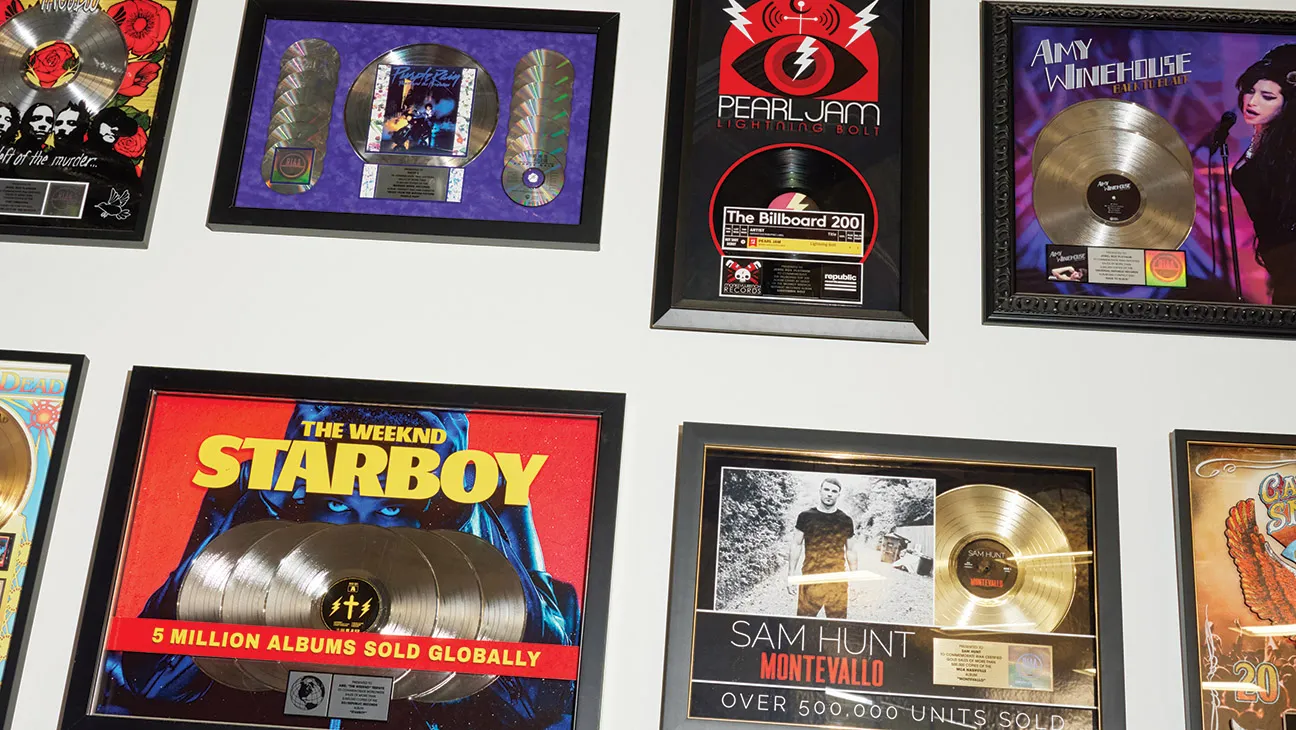
For all the ways in which the music industry has been transformed in the digital age, one tradition remains unchanged: Nothing signifies success in the business more effectively than a custom plaque on the wall. For years, the place to turn to for a record-shaped wall flex has been an Inglewood company called Jewel Box Platinum, founded in 1995.
Steve Driss, who took over Jewel Box Platinum two years ago, says his team produces 8,000 to 10,000 pieces a year, and that business is growing. Jewel Box offers standard packages to commemorate Gold or Platinum records or a high Billboard chart placement, ranging from $400 to $600. But Driss has fielded his share of outrageous custom requests. One of his largest commissions was a 10-foot-by-6-foot plaque for Rick Ross’ house, which featured all the rapper’s album covers. Driss recalls Ross telling him, “I want that plaque right there, so when I’m on my Zoom calls, everybody can see it.”
Jewel Box Platinum has pieced together guitars that had been smashed onstage for Post Malone and designed a plaque in a diamond frame for Michael Jackson. But Driss notes the requests go beyond just the music industry. He also recalls making a plaque for the blockbuster Barbie movie, which was later presented to star Ryan Gosling.
Unlike sales of physical records, requests for plaques are showing no signs of slowing down. What has changed is the client. As digital downloads and streaming ate into their business, major labels, which “used to be the ones ordering hundreds of plaques” for everyone involved in the success of a song or album, have reduced — but by no means eliminated — their order volume.
But as labels reduced their requests, other players came knocking. Driss says music streaming services, such as Spotify, iTunes and Apple Music, “opened up a lot of doors” for his business. Making up for the dwindling number of orders from labels are artists themselves, turning to Jewel Box to commemorate their own streaming achievements. Driss also has noticed more requests from the live events space, with people wanting to celebrate their involvement in a successful tour.
The present and future of the music industry may be digital-first, but when it comes to flexing, there’s been no digital substitute for the good old shiny, tangible, conspicuously hung plaque. Driss has his theory for why that is: “You walk into your doctor’s office and what’s behind the doctor’s desk? All of his or her diplomas. So folks in the music industry, these are their diplomas,” he explains. “These are their trophies.”
***
Read more from THR’s Music Issue



